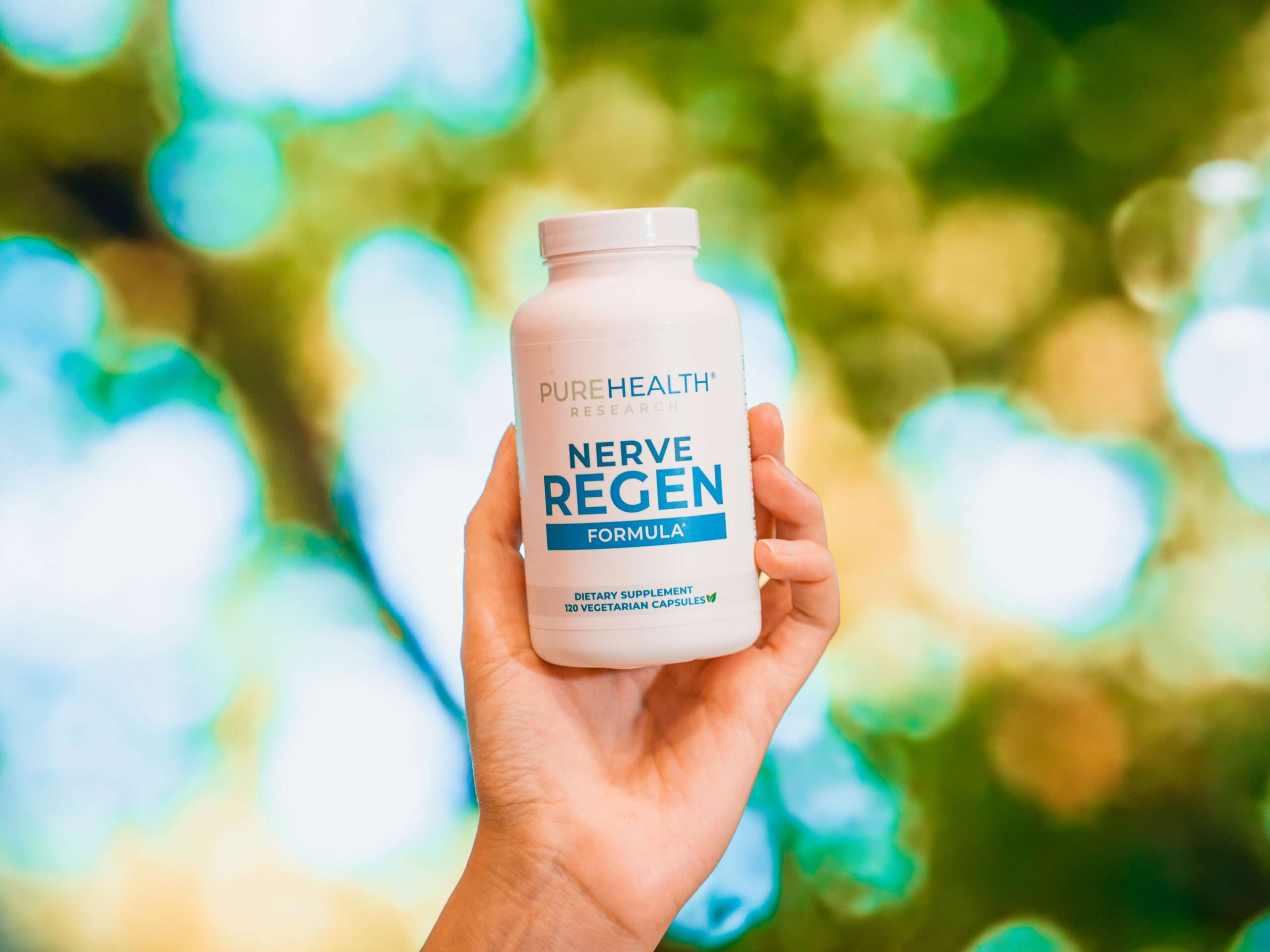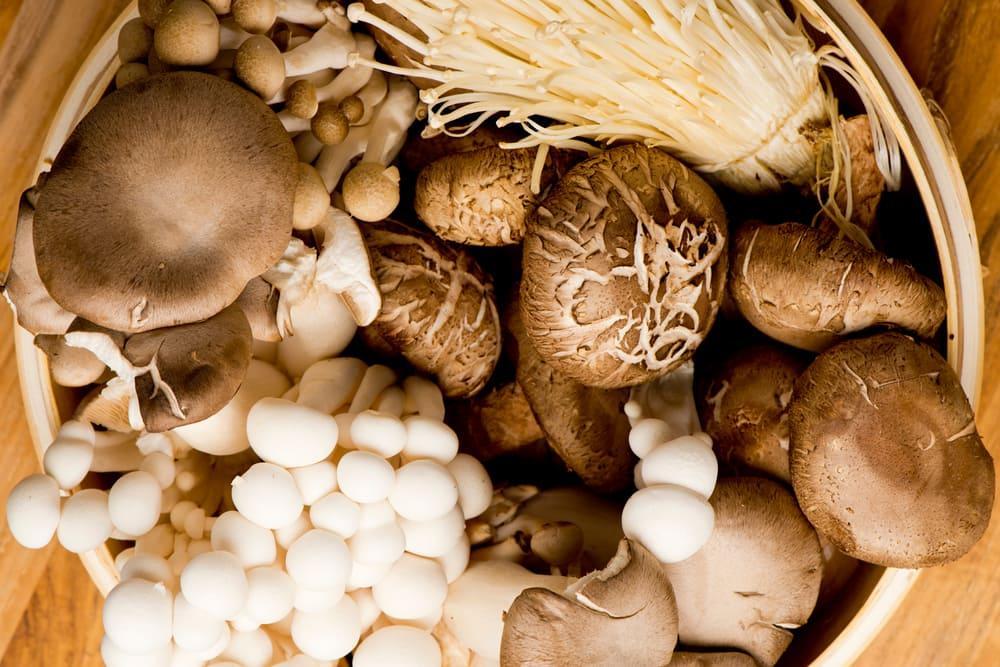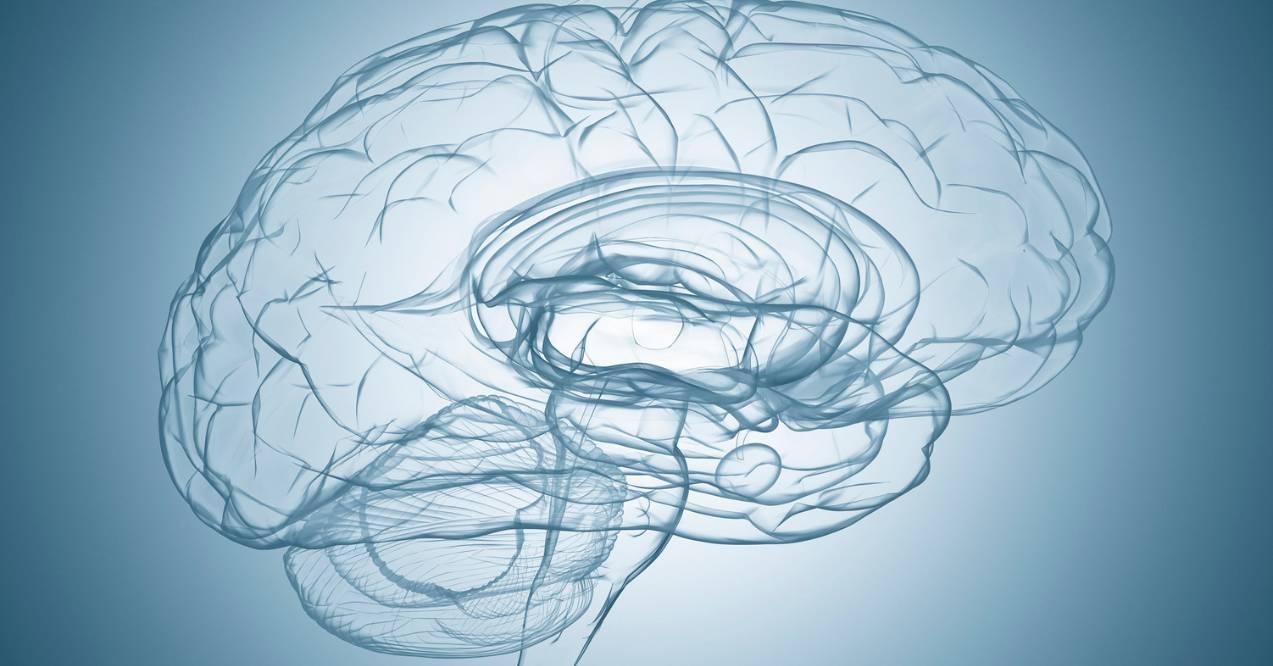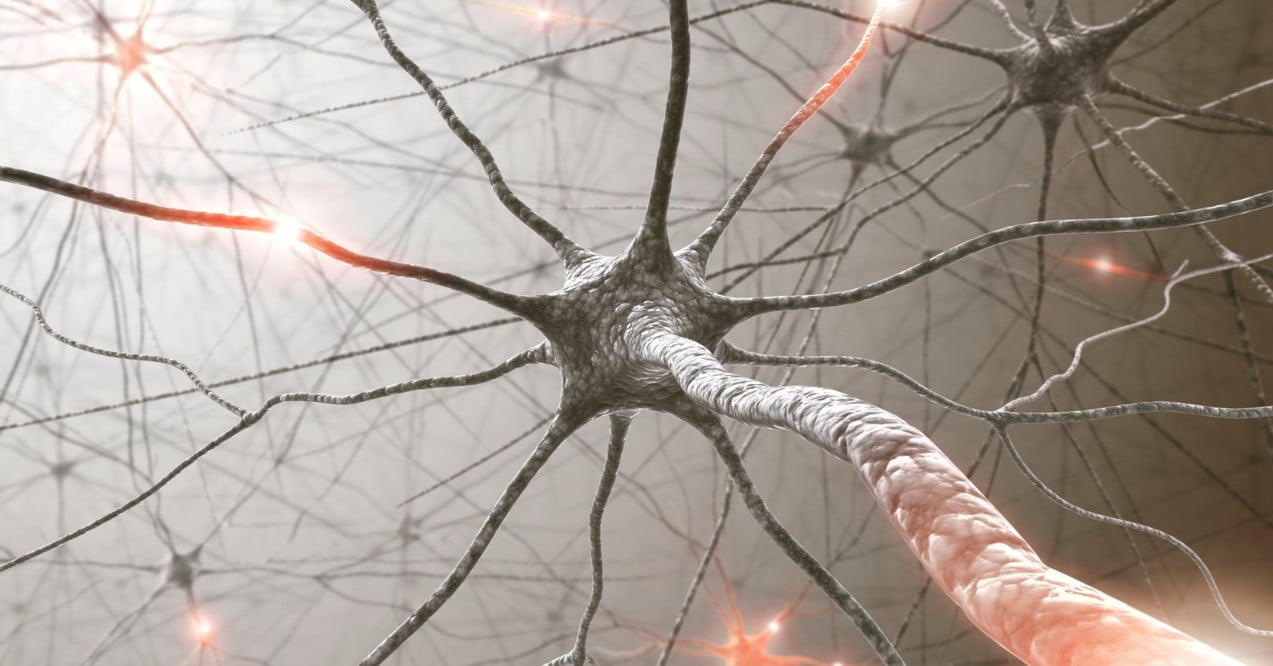9 Foods That Calm the Nervous System: Stress Relief Diet Tips
Medically reviewed by our experts


Eating foods that calm the nervous system is vital to sustain it. You cannot accomplish anything without an effective functioning nervous system: feel, think, or touch. You cannot even smell. For these reasons, you should maintain a healthy nervous system by eating foods you know will nourish it.
The nervous system controls your body’s movement and responses by generating, modulating, and transmitting information. It comprises the central nervous system (CNS) and the peripheral nervous system (PNS).
The brain and spinal cord comprise the first one, responsible for receiving, processing, and responding to sensory information. The latter mainly comprises nerves that feed information to your brain from most of your senses. The actions you take unconsciously, like breathing, are all brought about by the nervous system.
Are you often stressed or experience feelings of nervousness or fear? If so, you can usually opt for medical treatment. But besides medical checkups, you can also try foods for nerves. This article delves into how diet plays a significant role in your mental well-being by discussing several foods that are good for the nervous system and supplements like the Nerve ReGen formula. To understand more about these, read on!
How Diet Influences the Nervous System
When thinking about food, you may want to consider its impact on your well-being. Make sure you eat foods that are good for the nervous system. The nervous system requires various nutrients to perform its functions, including transmitting signals between the brain and the rest of the body.
Hence it can control body movement, thinking, seeing, and much more. With the food you eat, you can also maintain the nervous system structure and effective communication between cells. Ways in which your diet influences the nervous system include:
- Production of Energy: The brain requires energy to function effectively, and carbohydrate-rich foods such as unprocessed whole grains, beans, fresh vegetables, and fruit facilitate the body’s energy-giving process. Healthy fats provide the necessary energy too. Therefore, it is best to include these carbohydrates in your diet for this purpose.
- Brain Growth: During the early stages of life, the brain needs to develop. That will not be possible without the necessary nutrients like vitamin B12, zinc, and vitamin D. Including these in your child’s diet will make a difference.
- Swelling Control: Certain foods, like fruits and vegetables, can help you control inflammation. They are known as anti-inflammatory foods. Chronic inflammation often affects the functions of the nervous system. Western foods like processed foods and those rich in unhealthy fats trigger this condition. If you want a healthy nervous system, you should avoid those foods.
- Optimal Cognitive Function: According to research, you must also stay hydrated for optimal cognitive functioning. Cognitive functioning refers to various mental abilities like learning and reasoning. Lots of water in your diet is essential.
Foods to Calm the Nervous System


1. Blueberries
Blueberries are among the nervous system foods that are rich in special antioxidants that can enter the brain. These antioxidants boost brain performance and enhance memory. Additionally, they protect brain cells in older adults. Flavonoids, particularly anthocyanins, are the compounds found in blueberries responsible for improving memory and cognitive functions. These compounds also slow age-related decline in mental function.
The brain is often likely to suffer from oxidative stress that damages neurons. This condition occurs when there are many unstable molecules called free radicals in the brain and no antioxidants to suppress them. For this reason, blueberries should be part of your daily diet. This way, you’ll be able to tap into their excellent antioxidative properties to help neutralize harmful free radicals.
Due to the increased demand, blueberries are one of the fastest-growing perishable fruits. Customers purchasing blueberries have realized their numerous benefits. Did you know that this beneficial fruit is often referred to as a superfood or superfruit for its ability to prevent and alleviate several diseases? Apart from calming your nervous system, blueberries also mitigate cardiovascular conditions and malignant cell growth.


2. Almonds
Almonds are among the foods that calm the nervous system. They are rich in magnesium. Magnesium improves your neural health and keeps the communication network of nerves connected. You have probably asked yourself why so many people recommend taking soaked almonds.
The reason is that almonds’ skin contains tannin and lectins, which hinders the absorption of certain minerals and proteins. When soaked in warm water, peeling the almonds is easier, allowing your body access to the nutrients.
Almonds are also full of vitamin E, which improves brain alertness and prevents cognitive decline. You can rely on almonds if you want your brain to always be alert. Additionally, they contain omega-3 and six fatty acids, which enhance intellectual capacity.
This nerve food increases brain acetylcholine levels, a critical chemical messenger used by neurons, and in some cases, prevents the decline in the brain caused by aging. Almonds have a plethora of other essential nutrients, such as folate, mono and poly-unsaturated fatty acids, and polyphenols, which help your body in their own distinct way.


3. Salmon
The best fish food for the nervous system, without a doubt, is salmon. It has numerous benefits for your body. They include its positive effect on the skin, heart health, eye health, and assistance in weight loss when added to your diet. But the primary benefit of salmon is on the brain’s optimal functionality since it contains omega-3 fatty acids.
Did you know that the brain consists of 60% fatty acids? Fatty acids can be of different varieties, but the one that’s a primary structural component of our brains is docosahexaenoic (DHA). You can obtain this acid from the omega-3 contained in the salmon. Since the body does not produce DHA, it is vital to incorporate salmon into your daily diet.
Salmon benefits the brain by helping in the communication of brain cells. DHA in salmon helps in producing neurotransmitters that assist in this process. Another way it is advantageous to the nervous system is that it reduces inflammation that may cause adverse brain functioning. As such, consuming salmon will improve your brain’s performance.


4. Dark Chocolate
Chocolate may seem non-beneficial to your health, but dark chocolate is one food that calms the nervous system. This delicious treat boosts the production of feel-good chemicals called endorphins. Endorphins in dark chocolate contribute to reward and mood regulation. They are usually produced in the body to help relieve pain and improve mood.
Dark chocolate contains tryptophan, an amino acid precursor to serotonin. Serotonin is important in regulating mood, sleep, appetite, and digestion. Including tryptophan in your diet is paramount as it’s an essential nutrient our bodies cannot produce alone.
Phenylethylamine is another constituent of dark chocolate, also called a “love drug,” because it creates the same feeling as being in love. Another well-known benefit of consuming dark chocolate is the presence of flavonoids, which help to increase blood flow to the brain to boost your memory and problem-solving skills. As you can see, it is evident that consuming dark chocolate is beneficial for your health and well-being.


5. Spinach
Do you want to maintain your brain functions and the nervous system? Look no further. Spinach will work for you. Spinach is one of the most nutrient-rich vegetables known for impacting the nervous system. It helps maintain brain functions, especially in people of advanced-age.
Nutrients like vitamins C, K, and folate in spinach help produce hormones that keep the nervous system functioning at its best. Spinach also improves communication in the nervous system, and the nutrients operate chemically to make neurons’ channels more apt to process signals.
Among the many benefits of spinach is the presence of antioxidants, which assist in mitigating organ damage, malignant cell growth, and other life-altering disorders. Spinach also relaxes blood vessels, which improves blood flow and systolic-diastolic numbers and it reduces nervousness, fear, and jittery feelings.
In addition, it influences the gene expression in metabolism and inflammation and triggers satiety hormones to help you feel full between meals. These combined benefits may help curb weight gain and chronic health conditions of the heart and impaired blood sugar metabolism. Consider including spinach in your diet, and you will never regret it. The dark leafy greens are the ones to go for.


6. Oranges
Another food for the nervous system is oranges. Oranges contain many nutrients that help the body in various ways, but the area of interest here is the nervous system. This fruit contains hesperidin in both the pulp and peels. Therefore, it is best to consume orange juice made from the whole fruit to acquire this highly valuable bioflavonoid.
One of the ways oranges boost the nervous system is by facilitating cognitive functioning thanks to hesperidin. This bioflavonoid aids in boosting this part of the brain due to the neuroprotective properties found in its polyphenol compounds.
Apart from brain health and cognition, polyphenols further help in anti-inflammatory and antioxidative capabilities in your body. According to studies, individuals who drank orange juice containing hesperidin performed better in eight cognitive functioning tests. Therefore, oranges should be a mainstay in your daily diet as a nervous system food.


7. Green Tea
One of the healthiest beverages available is green tea. It has multiple health benefits, including calming the nervous system. Amino acid L-theanine in green tea reduces nervousness, fear, and jittery feelings. It also raises dopamine and the production of alpha waves in the brain, decreasing stress and alleviating dark moods. Green tea contains caffeine that improves physical endurance, cognitive function, alertness, and perception of fatigue.
Although most people use powders and supplements of green tea, preparing it from loose-leaf leaves is preferable. Powders and supplements of green tea may not contain the full nutrients contained within the leaves.
It is advisable not to add sugar to your green tea, as it will inhibit the provision of necessary nutrients, undoing the positive benefits. The same applies to adding milk. It reduces the antioxidant capacity of this healthy beverage. Normalize taking sugarless green tea to obtain all its nutrients for your nervous system’s sake.


8. Avocado
Improving brain functions is one of the many benefits of avocado because it is rich in folic acid, potassium, and magnesium. Potassium promotes effective nerve conduction. Just a quarter of the fruit daily produces immense benefits for your body.
This healthy fruit also increases your body’s absorption of antioxidants. Studies show that healthy fatty acids in avocado help protect the nerve cells in the brain called astrocytes, which optimize the health and function of information-carrying nerves. The consumption of avocado has been tested and proven to treat brain disorders that affect the functionality of astrocytes.
Avocado promotes healthy cholesterol management, reducing the risk of life-threatening clots, which can affect the brain. Researchers noted that avocado leaf extract enhances the transmission of the calming neurotransmitter GABA and could be useful for seizure management in the early stages of life. An avocado is a reliable option among foods that calm the nervous system. You can consume avocado naturally or add it to salad, smoothies, and creams.
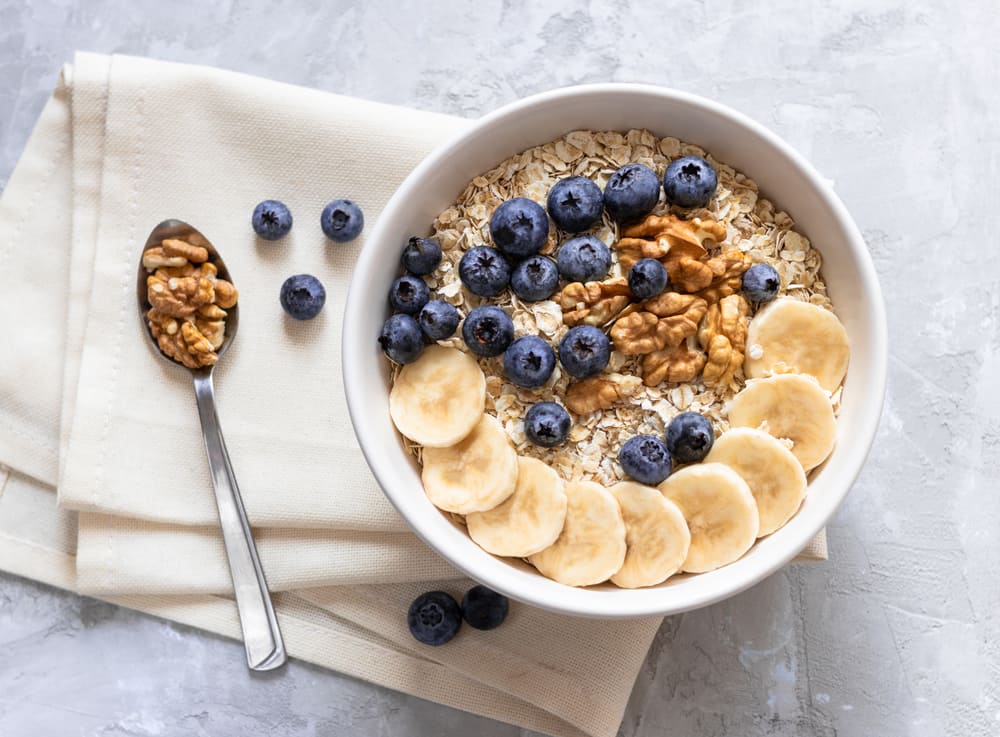

9. Oatmeal
With its nutrients, oatmeal helps maintain a healthy nervous system, mitigates the development of dark moods, and reduces feelings of nervousness, jitteriness, and fear. It contains vitamin K, essential in the formation of prothrombin. Oatmeal is helpful in cases of exhaustion when associated with sadness and melancholy.
It’s excellent for new mothers, shift workers, and people adapting to changes or life events. Difficulty falling asleep also prompts the use of oatmeal. Oatmeal contains various rich minerals and vitamins like magnesium, iron, copper, zinc, folate, and vitamin B1, to mention a few. A lot of nutrients there, right? These nutrients are why you ought to include them in your diet.
It is also well-documented that oatmeal sharpens memory, helps focus, and supports cognitive abilities. Oat straw strengthens nerve sheaths, making it fit among foods that are suitable for the nervous system. You can consume either raw or cooked oatmeal or add it to foods like porridge while cooking or enjoy it in cold shakes. It is that convenient!
Supplements Can Also Calm the Nervous System
Besides foods, supplements can also calm the nervous system. Ideally, you’d want your chosen supplement to contain the following ingredients to ensure its effectiveness:
- Vitamin D: Vitamin D has a neuroprotective effect, influencing neuron survival, blood flow, and plasticity for improved memory and learning. It also helps reduce oxidative damage to nervous tissue. Generally, it helps regulate nervous system development and functions.
- B Vitamins: The B vitamins include vitamins B6, B12, and B1. They assist in the production of neurotransmitters, which are chemicals that communicate signals in the brain. B vitamins also help reduce stress and improve mood and cognitive function.
- R-Alpha Lipoic Acid: R-Alpha lipoic acid is a form of alpha lipoic acid that helps protect against memory loss. Additionally, it has antioxidant properties that protect nerve cells and the entire nervous system in the body.
- Oat Straw Extract: Oat straw extract has traditionally been used in the past to reduce stress and alleviate dark moods and feelings of nervousness and fear. Some studies suggest it improves mood by hindering the enzyme phosphodiesterase type 4. Overall, it reduces nerve-dysfunction symptoms.
- Passionflower Herb: Passionflower lowers the activity of certain brain cells, making you feel more relaxed. Therefore, it helps the nervous system by promoting relaxation and calmness.
Nerve ReGen Formula
When it comes to supplements for brain and mental health that calm the nervous system, there’s only one option you should try. Regenerate healthy nerves and enjoy your hobbies again by consuming the Nerve ReGen Formula. It is the most effective supplement with ingredients proven by clinical and reviewed studies that supports healthy nerve function. Its premium botanicals and nutrients reduce discomfort, rebuild myelin insulation, damper hyperactive signals, and improve small nerve functions.
It defends your delicate nerves from oxygen deprivation, oxidative stress, and further damage. Experts, including Dr. Holly Lucille, ND, approves of the consumption of the bioactive compounds in Nerve ReGen due to their fortifying nerve health capabilities.
This beneficial supplement created by PureHealth Research, contains various nutrients and botanicals, including vitamins D3, B12, and B6. In addition, riboflavin, acetyl-l-carnitine (ALCAR), benfotiamine, r-alpha-lipoic acid (RALA), feverfew extract, oat straw extract, passion flower herb extract, and baical skullcap root extract.
Interestingly, Nerve ReGen is gluten-free, dairy-free, non-GMO, and soy-free, making it apt for consumption by almost everyone. Studies show that deficiency of specific nutrients is common among people with impaired nerves. They also show that replenishing these deficiencies reduces nerve dysfunction symptoms. Nerve ReGen’s ingredients aim to replenish these deficiencies and promote healthy nerve cell reformation and regeneration.
It is important to note that you cannot use Nerve ReGen if you are pregnant or breastfeeding. Do not combine it with antacids. Before consuming this product, you must consult your doctor if you take Chloramphenicol, calcium-based heart medications, diuretics, or medicines transformed by the liver.
When taking Nerve ReGen, be sure to follow the label’s directions or as directed by your healthcare professional. Taking four capsules with 8 oz of water is recommended once daily. For remarkable results, take healthy fats like avocado alongside it.
Final Thoughts
Isn’t it amazing to realize how the foods you eat play an important role in your nervous system? Over and above that, there are supplements like Nerve ReGen, which influence the nervous system in a great way.
It is time to change your diet if you do not consume any of the above mentioned foods or supplements. You need a healthy nervous system for your heart to beat, lungs to breathe, eyes to see, digest food to create energy, make wise decisions, be productive, feel someone’s touch, and be happy.
Including foods that calm the nervous system in your diet maintains your well-being and optimizes body functions. There’s plenty to choose from the foods outlined here if you wish to improve your quality of life. The list is long, so be sure to consult a nutritionist if you need to learn how to incorporate these options into your diet.
Diet plays a crucial role in maintaining a healthy nervous system. Nutrient-rich foods provide the necessary components for energy production, brain growth, and inflammation control, all of which are essential for optimal cognitive function and overall nervous system health.
Foods such as blueberries, almonds, salmon, dark chocolate, spinach, oranges, green tea, avocados, and oatmeal are beneficial for the nervous system. These foods contain essential nutrients like antioxidants, vitamins, and healthy fats that support nerve health, improve cognitive functions, and reduce discomfort.
Yes, supplements can support nervous system health. Effective supplements often include ingredients like Vitamin D, B Vitamins, R-Alpha Lipoic Acid, Oat Straw Extract, and Passionflower Herb. These ingredients help reduce oxidative damage, improve mood and cognitive function, and support overall nerve health.
Popular Articles
Advertisement. This site offers health, wellness, fitness and nutritional information and is designed for educational purposes only. You should not rely on this information as a substitute for, nor does it replace, professional medical advice, diagnosis, or treatment. If you have any concerns or questions about your health, you should always consult with a physician or other health-care professional. Do not disregard, avoid or delay obtaining medical or health related advice from your health-care professional because of something you may have read on this site. The use of any information provided on this site is solely at your own risk.
